

Seychelles delegation attended the first world conference on Tourism Development in Beijing China
The Seychelles delegation headed by Sherin Naiken, CEO of the Seychelles Tourism Board attended the first world Conference on Tourism Development in the Peoples Great Hall of China, Beijing on Thursday the 20th May 2016. The event which was jointly organised by the China National Tourism Administration and the UNWTO was attended from the Seychelles side by Vivianne Fock Tave, the Seychelles Ambassador to the Peoples Republic of China, Jean luc Lai Lam, Seychelles Tourism Board Manager for China, Stephanie Lablache and Lee Huan Huan both Seychelles Tourism Board Senior Marketing Executives based in Seychelles and Beijing respectively.
Important guests at the event were Mr. Li Keqiang, Prime Minister of the Republic of China, Mr.Filipe Jacinto Nyusi, President of Mozambique, Mr. Taleb Rifai, Secretary-General of the World Tourism Organisation, who all addressed the 1000 delegates at the opening ceremony. The delegates were from over a hundred countries which consisted of both Government organisations as well as leading tourism partners from the private sector.
The Summit agenda was on sustainable Development through Tourism, Tourism for Poverty Reduction, Tourism for Peace and it was moderated by the famous CNN Televison Anchor Richard Quest. The day ended with the adoption of the Beijing Declaration.
Topic which relates more to Seychelles and which was the most interesting debate of the day was attaining the sustainable development goals (SDGs) through tourism. The debate centred on what countries are required to do to use tourism as the vehicle to achieve their SDG’s. Indeed, the various participants in the debate stressed on the need to have a more cohesive approach between the various units—Public and private if the SDGs are to be achieved. Amongst the various subject matter raised, were the role of the public and private sector, the need to work together and the need for the SDGs to be understood by all levels of the Government as well as by the business community. As one participant shared “all the ministers in the Government are defacto a minister for tourism!”
The head of delegation, Ms Naiken, had a lot to share to other delegates in between sessions as the summit did not have open plenary sessions. “Seychelles have had decades of experience and lots success stories in sustainable development” shared miss Naiken to a delegate “The cornerstone of every policy and law in Seychelles has been sustainability.”
The new sustainable development agenda, which came into effect in January 2016, succeeded the Millennium Development Goals (MDGs) launched in 2000 to which Seychelles managed to attain almost all of it, some even before the process started. Seychelles is well under way to attain the new set of targets.
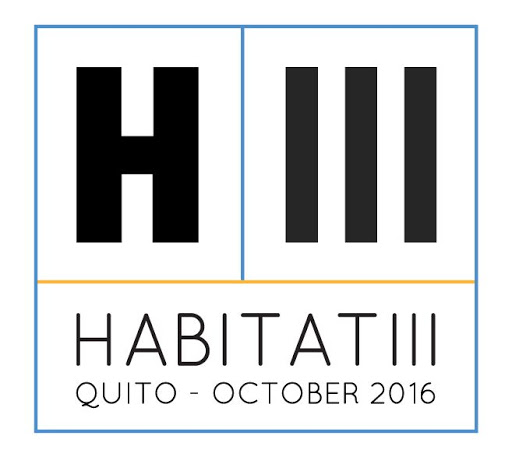
UN Report: The Earth is not flat – it is urban
While cities have emerged over the past 20 years as the world’s economic platforms for production and innovation, helping millions escape poverty through better jobs and improved quality of life, mass urbanization has also led to overcrowding, deepened inequalities and triggered a raft of environmental and health challenges, according to a new United Nations report.
The dramatic shift towards urban life has profound implications for energy consumption, politics, food security and human progress, says the inaugural edition of the World Cities Report, compiled by the UN Human Settlements Programme (UN-HABITAT), which stresses that although some of this change is positive, poorly planned urbanization can potentially generate economic disorder, congestion, pollution and civil unrest.
On the theme, ‘Urbanization and Development: Emerging Futures,’ the report presents an analysis of urban development of the past 20 years and reveals, with compelling evidence, that there are new forms of collaboration and cooperation, planning, governance, finance and learning that can sustain positive change.
While noting that two-thirds of the global population is expected to live in cities by 2030 and produce as much as 80 per cent of the global gross domestic product (GDP), the report unequivocally demonstrates that the current urbanization model is unsustainable in many respects.
In the run up to HABITAT III – shorthand for the major global summit formally known as the UN Conference on Housing and Sustainable Urban Development, set to be held in Quito, Ecuador, on 17-20 October 2016 – the report conveys a clear message that the pattern of urbanization needs to change to better respond to the challenges of our time, to address issues such as inequality, climate change, informality, insecurity, and unsustainable forms of urban expansion.
UN-Habitat Executive Director, Dr Joan Clos, said: “In the twenty years since the Habitat II conference, the world has seen a gathering of its population in urban areas. This has been accompanied by socioeconomic growth in many instances. But the urban landscape is changing and with it, the pressing need for a cohesive and realistic approach to urbanization.
“A ‘New Urban Agenda’ is required to effectively address the challenges and take advantage of the opportunities offered by urbanization,” said Mr. Clos. As the urban population increases, the land area occupied by cities is increasing at a higher rate. It is projected that by 2030, the urban population of developing countries will double, while the area covered by cites could triple.
Such urban expansion is wasteful in terms of land and energy consumption and increases greenhouse gas emissions. The urban centre of gravity— at least for megacities, has shifted to the developing regions. In 1995, there were 22 large cities and 14 megacities globally; by 2015, both categories of cities had doubled, with 22, or 79 per cent of the megacities located in Latin America, Asia and Africa. The fastest growing urban centres are the medium and small cities with less than one million inhabitants, which account for 59 per cent of the world’s urban population.
Noting that urbanization provides a great opportunity to achieve the Sustainable Development Goals (SDGs), the report warns that while in some cities, for some people, former New York City Mayor Michael Bloomberg’s “urban renaissance” is occurring, for most of the world this is absolutely not the case.
“Urban policy failure has been spectacular in its visibility and devastating in its impacts on men, women and children in many cities,” says the report, stressing that there are too many people living in poor quality housing without adequate infrastructure services such as water, sanitation, and electricity, without stable employment, reliable sources of income, social services, or prospects for upward social mobility.
“Prosperity was once described as a tide that raised all boats, but the impression today is that prosperity only raises all yachts,” the report underscores, setting out the key elements of a comprehensive approach to a ‘New Urban Agenda’ which must be bold, forward looking, and tightly focused on problem-solving with clear means of implementation.
For the new Agenda to take hold, governments, international organizations, bilateral aid and civil society must recognize the transformative power of cities and their unique capacity to generate new forms of economy, with greater sensitivity to the environment, culture, and social life. Moreover, the report argues that for governments, “adopting urban policies means that they accept that the world consists not just of national macro-economies, but also of urban areas, with many different sizes, forms and characters.”
“This is why today we stand at a Galilean moment. The Earth is not flat. It is urban. If we do not recognize that the settlement down the road is related to where we live, we shall all suffer, and unnecessarily so,” warns the report’s final chapter, urging global political leaders to recognize that the world is very different than it was 30 years ago – that the challenges facing our cities “are footprints of our future, warning us of the world to come and imploring us to do better.
“It is for the Habitat III conference to steer the ‘emerging futures’ of our cities on to a sustainable, prosperous path,” the report concludes.
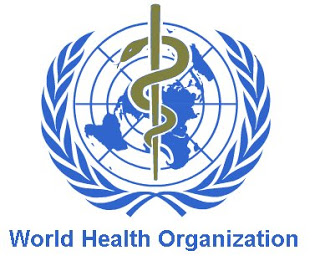
UN WHO: Zika on doorstep of Africa
The United Nations health agency today confirmed that the Zika virus strain circulating in Cabo Verde, an island nation off the northwest coast of Africa, is the same as the one responsible for the outbreaks linked to neurological disorders and microcephaly in South America.
The virus was most likely imported from Brazil, according to a press release issued by the World Health Organization (WHO).
As of 8 May 2016, there have been 7,557 suspected cases of Zika in Cabo Verde. Three cases of microcephaly have been reported from Cabo Verde with one case by the Centers for Disease Control and Prevention (CDC) after being sent to the United States. So far, no case of Guillain-Barre Syndrome (GBS) has been reported in Cabo Verde.
“The findings are of concern because it is further proof that the outbreak is spreading beyond South America and is on the doorstep of Africa,” said Matshidiso Moeti, WHO Regional Director for Africa. “This information will help African countries to re-evaluate their level of risk and adapt and increase their levels of preparedness.”
WHO warned that as a first step, these countries should heighten risk communication to pregnant women to raise awareness of complications and promote protection steps to avoid mosquito bites as well as sexual transmission. In addition, countries should increase their surveillance for Zika transmission and congenital malformations, such as microcephaly, as well as Guillain-Barré syndrome.
WHO will continue to review existing risk assessments, increase surveillance, and assess laboratory testing capacity and support community engagement and risk communications in priority countries through its Zika Virus Disease Incident Management System launched in February in the capital city of Brazzaville, the Republic of the Congo, and at its Geneva headquarters.
In addition, WHO and its partners will support the countries in the African region to step up preparedness efforts for early detection, confirmation and management of potential complications related to Zika infection. The response will build on investments in strengthened systems made in West Africa during the Ebola emergency.
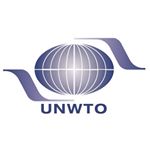
UN chief: Saddened by EgyptAir flight crash
United Nations Secretary-General Ban Ki-moon is “deeply saddened” by the crash of EgyptAir’s flight MS804 yesterday, his spokesman said today in a statement.
According to preliminary reports, 66 people were on board the Paris-to-Cairo flight crossing the Mediterranean Sea.
“He sends his heartfelt condolences to the families of the victims and to the governments and peoples affected by this tragedy,” said the statement.
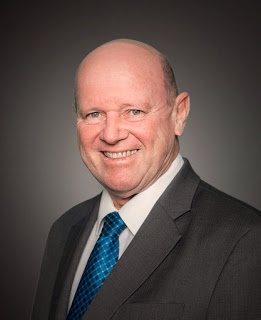
PATA UNWTO Debate in Guam: Seychelles Minister VIP panel guest
During the course of his visit to the US island of Guam as a VIP invited guest at the 2016 PATA Summit being hosted on the island at the Dusit Thani resort, Alain St.Ange, Seychelles Minister for Tourism & Culture has once again appeared on a high level panel of prominent regional personalities debating the nature of tourism and the best way forward for island economies.
Hosted by the Guam Visitors Bureau, the 2016 annual PATA (Pacific Asia Travel Organisation) summit is a 4-day programme consisting of the association’s executive and advisory board meetings, annual general meeting and PATA Youth Symposium as well as a one-day conference that addresses major issues relevant to the travel and tourism industry. This year’s summit has seen an increase in participation to more than 600 delegates which sets a new record.
Minister St.Ange was asked to deliver the summit’s keynote address at its opening on May 19th to a packed convention centre that included senior members of PATA and the Guam legislature and also Zoltan Somogyi, Executive Director for Programme and Coordination at the UNWTO (United Nations World Tourism Organization). Later that same day Minister Alain St.Ange of the Seychelles appeared on a panel discussion: Driving solo or following the pack, which explored whether destinations should be promoted individually or collectively within a region.
The Seychelles minister’s appearance on his third panel discussion, titled Merging Motivations, on how to align tourism public/private sector roles to best effect, saw him give instances of how Seychelles has approached the relationship between public and private sectors in tourism. He was joined on the panel by Jon Nathan Denight, President and CEO of Guam Visitors Bureau; Mark Schwab, CEO of Star Alliance and Derek Toh, Founder and CEO of Wobb. The session was moderated by the popular and hugely respected BBC World News presenter Sharanjit Leyl.
During the course of his stay on Guam, Minister St. Ange has also held meetings with Guam Governor Eddie Baza Calvo and also Senator Tina Rose Muna Barnes, who was present at the airport for the minister’s arrival.
“My stay on Guam has surpassed all my expectations,” enthused Minister St.Ange, “and I have been truly captivated by this magical island and especially by the friendliness of its people and I look forward to further collaboration to strengthen this new friendship and to exploring new ways of working together for our mutual benefit”.
Minister St.Ange, who is accompanied by Glynn Burridge, the Seychelles Tourism Board’s senior consultant, left Guam for Seychelles on 22nd May.
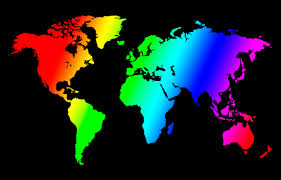
Another African country welcomes LGBT travelers with open arms
The African tourism world became larger and more beautiful for LGBT (Lesbian, Gay, Bisexual and Transgender) travelers.
After President & CEO David Scowsill of the World Travel and Tourism Council (WTTC) was a speaker at the recently concluded International Gay Lesbian Travel Association (IGLTA) Summit in South Africa, after South African Minister of Tourism The Honourable Mr Derek Hanekom, was a host and delivered a keynote speech at the same event, now also The Honourable Alain St.Ange, Minister of Tourism and Culture from the Seychelles is after the rainbow travel dollar.
He told eTurboNews: “Seychelles welcomes tourists with open arms. This include tourists regardless of origin, race, religious believe what includes sexual orientation.
Seychelles is a rainbow nation and had demonstrated this with the United Nations of Culture and the recent carnival and this move to decriminalize sodomy and respect the rights of people is seen as a positive move for the islands.”
This was a reaction after Seychelles’ National Assembly has passed an amendment to the penal code that decriminalizes the act of sodomy.
Currently LGBT travelers are welcome in South Africa, the French Vanilla Island Territory Reunion and now also in the Seychelles.
Homosexual activity between adults also has never been criminalized in Burkina Faso, Central African Republic, Chad, Republic of the Congo, Côte d’Ivoire, Democratic Republic of the Congo, Djibouti, Gabon, Madagascar, Mali, Niger, and Rwanda.
Benin and the Central African Republic, do not outlaw homosexuality, but have certain laws which apply differently to heterosexual and homosexual individuals.
In Uganda, Tanzania, and Sierra Leone, offenders can receive life imprisonment for homosexual acts. In addition to criminalizing homosexuality, Nigeria has enacted legislation that would make it illegal for straight family members, allies and friends of the LGBT to be supportive. According to Nigerian law, a straight ally “who administers, witnesses, abets or aids” any form of gender non-conforming and homosexual activity could receive a 10-year jail sentence. South Africa has the most liberal attitudes toward gays and lesbians, with a constitution which guarantees gay and lesbian rights and legal same-sex marriage.
Most of Africa has been known to high spending LGBT travelers to avoid. The exception was South Africa and the French territory Reunion where same sex marriages are legal and the LGBT community is fully protected. Now Seychelles can be added to a list of countries LGBT travelers are allowed and are welcomed to spend their money and enjoy exploring as a tourist.
Ironically the British introduces a law in the Seychelles during colonial times making same sex sexual acts a crime. After the election in Seychelles in his State of the Nation Address in February that the Seychelles President James Michel announced his government’s intention to repeal the 1955 law that criminalises sodomy.

WTTC finally takes a stand on LGBT travel and tourism – or not
It’s official. The World Travel & Tourism Council (WTTC) released a statement on where it stands on global LGBT tourism – sort of.
WTTC CEO David Scowsill recently was a speaker at the IGLTA annual summit in Cape Town, but many participants were disappointed.
The audience was waiting to hear about how WTTC and the UN World Tourism Organization (UNWTO) can help to stop open discrimination and fear from its members of the LGBT community to participate and enjoy global travel and tourism activities. Unfortunately, this was not addressed by Mr. Scowsill.
Of course it’s important for the leader of a private global travel and tourism organization to either say we support LGBT tourism or we don’t. As WTTC told eTurboNews in a statement today, “The World Travel & Tourism Council was founded by leading private companies in the sector to raise awareness of the enormous economic and social benefits that travel and tourism brings to the entire world community.”
WTTC’s statement continued: “For the positive effects of these benefits to be felt, it is important that people are able to travel wherever and whenever they wish. The LGBT leisure travel market is significant and growing. Destinations which have actively promoted to and welcomed this segment, are reaping the rewards economically, socially, and culturally.”
Again, WTTC is short in saying we support LGBT tourism. The statement dances around the issue and observes that those that do support it, may prosper economically.
So where does WTTC stand on this issue? Is this going to remain a non-issue at upcoming WTTC summits and discussions?
It’s obviously very different when it comes to a stand on empowering women. This subject was a top item on the agenda at WTTC summits and events, but LGBT and equality for gay, lesbian, bisexual, and transgender travelers has so far never been seriously discussed.
The same is true for UNWTO. eTN will continue to push for both organizations to make a clear stand one way or the other. Many UNWTO member countries and many WTTC companies based in certain member countries where homosexual activities are crimes may be the cause for WTTC’s hesitation to take this important stand. One has to follow where the money comes from to maintain the two organizations.
It could very well be the reason WTTC and UNWTO are forced to maintain a “neutral” stand, but can neutrality justify allowing the criminalization of LGBT travelers and open discrimination? How can the travel and tourism industry take the WTTC and UNWTO leadership serious, if 10 percent of the world’s travelers are being overlooked?

Seychelles minister will deliver keynote address in Guam next week
Minister Alain St.Ange of the Seychelles is heading to the U.S. island of Guam for the 2016 PATA Annual Summit. This follows an official invitation letter to the Seychelles Minister by Mario Hardy, the Chief Executive Officer of PATA for Minister St.Ange to be the keynote speaker at the PATA annual summit in Guam May 18-21 that will will be held at the Dusit Thani Guam Resort.
The Pacific Asia Travel Association (PATA) is a not-for profit association that is internationally acclaimed for acting as a catalyst for the responsible development of travel and tourism to, from and within the Asia Pacific region. The Association provides aligned advocacy, insightful research and innovative events to its member organisations, comprising 97 government, state and city tourism bodies, 27 international airlines, airports and cruise lines, 63 educational institutions, and hundreds of travel industry companies in Asia Pacific and beyond. Thousands of travel professionals belong to the 43 local PATA chapters worldwide. The Association also has official offices or representation in Beijing, Sydney and London.
“This was a golden opportunity to increase the visibility of Seychelles in Asia and one we could not miss. Air Seychelles has started direct non-stop flights to Beijing in China and as a country we have been actively working to claim our fair share of tourists from Asia as a whole. With Sharanjit Leyl, the BBC World News Presenter moderating the Guam Summit we are sure that Seychelles was be able to once again be seen, be noticed and also get the needed visibility it continues to need to remain relevant in the world of tourism” said Minister Alain St.Ange as he was preparing to head to Guam.
On this Guam Meeting the PATA CEO Mario Hardy said, “Preliminary figures from PATA indicate that 38 destinations in the Asia Pacific region welcomed 537.8 million international visitor arrivals in 2015 and that number is expected to reach more than 650 million by 2020. While this growth is surely impressive, it becomes imperative that both the public and private sector work together to ensure sustainable and responsible growth of the travel and tourism industry. The UNWTO/PATA Ministerial Debate is the perfect platform for bringing together both parties to work towards these goals.”
And on his part the UNWTO Secretary-General, Taleb Rifai said, “Islands are home to some of the richest marine and land biodiversity on earth. Because of this, they are also a top destination for millions of tourists each year. The special geographical situation of islands makes them unique, but at the same time this poses a number of challenges for them including sustainability, climate change, air connectivity and positioning islands as top choice destinations in the minds of tourists. This Ministerial Debate will serve as an important preparatory exercise for the International Year of Sustainable Tourism for Development, 2017 adopted by the United Nations General Assembly”.
“This is the first time PATA and the United Nations World Tourism Organization are coming together to host this historic meeting in the Pacific. The discussion of important issues, such as global warming and sustainable tourism, are very relevant to the region as well as the global tourism industry,” said GVB Executive Director Nathan Denight. “Guam has been a regional hub in the Pacific for hundreds of years, and in this modern age, we are America in Asia and the perfect destination for high level meetings. We look forward to welcoming all the delegates and guest speakers to our island paradise.”
PATA and the UNWTO are especially honoured to have Marshallese poet, writer, artist and journalist Kathy Jetnil-Kijiner officially open the debate. Her poetry focuses on raising awareness on issues and threats faced by the people of the Marshall Islands. She has performed at the opening ceremony of the UN Climate Summit 2014 in New York and the 2015 United Nations Climate Change Conference (COP 21) in Paris.
Apart from Honourable Minister Alain St.Ange, Minister of Tourism and Culture, Seychelles other confirmed speakers include Andrew Dixon, Owner, Nikoi and Cempedak Islands; Derek Toh, Founder & CEO, WOBB;Gerald Lawless, Head of Tourism and Hospitality, Dubai Holding; Jon Nathan Denight, General Manager, Guam Visitors Bureau; Mark Schwab, CEO, Star Alliance; Morris Sim, Co-Founder & CEO, Circos Brand Karma; and Zoltan Somogyi, Executive Director for Programme and Coordination at the World Tourism Organization (UNWTO).
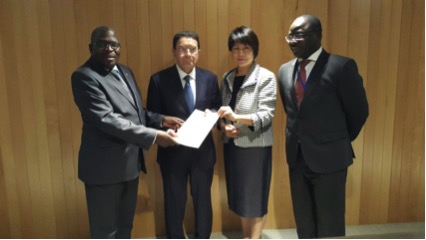
UNWTO Tourism Legacy Project in Livingstone, Zambia
ZAMBIA has been given USD 47,500 for UNWTO Tourism Legacy project to be set up in tourist capital Livingstone. This is in honor of the people of Livingstone for their hospitality during Zambia’s co-hosting of UNWTO 20th Session of the General Assembly in August 2013.
The funds have been donated by the government of the Republic of Korea through the UNWTO Sustainable Tourism for Eliminating Poverty (ST-EP) Foundation.
The announcement was made at the ongoing 103rd UNWTO Executive Council Meeting in Malaga, Spain by Zambia’s Ambassador to France His Excellency Ambassador Humphrey Chilu Chibanda who is also the Permanent Representative to the UNWTO.
The Permanent Secretary in the Ministry of Tourism and Arts Mr. Stephen Mwansa who is leading the Zambian delegation to the country’s 2nd UNWTO Executive Council Session meeting since having been admitted to the Council last September, handed over the signed cooperation agreement between UNWTO and the Ministry of Tourism and Arts to UNWTO Secretary-General Dr. Taleb Rifai.
Mr. Mwansa thanked UNWTO Secretary-General for having fulfilled the promise he made to the people of Livingstone and Zambia. The Permanent Secretary applauded the UNWTO Chief for being a true friend to Zambia and for the continued support and unwavering leadership he continues to give to Zambia, Africa and indeed other members of the Organisation.
The Permanent Secretary also thanked Ambassador Dho YOUNG-SHIM Chairperson of the UNWTO-ST-EP Foundation and the people of the Republic of South Korea for their continued generous support to Zambia. He stated that this is the third ST-EP project Zambia is receiving under the support of the government of South Korea.
The Permanent assured the Secretary-General and Ambassador Dho of Zambia’s commitment to full implementation of the project and ensure that it benefits the intended beneficiaries who are the Livingstone community.
The Secretary-General praised Zambia’s commitment and support of the UNWTO objectives. He informed the Permanent Secretary that soon one of the UNWTO officials from the Technical Services will be travelling to Zambia in the first week of June to launch the new ST-EP Project.
And Zambia’s Ambassador to France, who is also the Permanent Delegate to UNWTO, Ambassador Humphrey Chibanda, expressed gratitude for the generous support rendered by the Government of the Republic of South Korea to Zambia through the ST-EP initiative.
Editors Notes.
Despite the special position of tourism in poverty alleviation, often poor segments of the population in developing countries and least developed countries do not benefit from the economic impact of tourism. The UNWTO Sustainable Tourism – Eliminating Poverty Initiative (ST-EP) promotes poverty alleviation through the provision of assistance to sustainable development projects. The initiative focuses on enhancing the Organization’s longstanding work to encourage sustainable tourism – social, economic and ecological – with activities that specifically alleviate poverty, deliver development

UNWTO update: Taleb Rifai appoints Favilla Lucca de Paula to be second in charge
UNWTO Secretary General Taleb Rifai dropped a bombshell yesterday at the United Nations World Tourism Organization Executive Council Meeting.
The respected tourism leader was given a lengthy standing ovation for his diligent service to the United Nations World Tourism Organization during yesterday’s Executive Council meeting in Malaga, Spain.
According to reliable eTN sources, the secretary General put the Executive Director for Operational Program and Institutional Relations Márcio Favilla Lucca de Paula from Brazil second in charge of UNWTO.
Rifai said Mr.de Paula would be taking over some important responsibilities in the leadership of UNWTO.
Mr Rifai however will remain in charge of the UNWTO Secretariat until 31 December 2017, end of his 4 years term as Secretary General.
According to eTN sources this move may be related due to health reasons.
Taleb Rifai stressed this has nothing to do with electives issues next year in regards to UNWTO’s expected election of a new secretary general.
Besides Zimbabwe also Morocco has announced candidacy to the new post.
It appears second in charge of UNWTO is now Favilla Lucca de Paula.
This move was the number one talk among ministers and delegates yesterday.
From April 2007, Mr. Favilla Lucca de Paula was Vice Minister of the Secretariat of Institutional Relations of the Presidency of Brazil.
Between January 2010 and December 2013 he held the position of UNWTO Executive Director for Competitiveness, External Relations and Partnerships.
Prior to this appointment, he was Brazil’s first Vice Minister of Tourism (2003-2007) where he played a key role in the structuring of the first exclusive Ministry of Tourism in Brazil.
During his term as Vice Minister of Tourism he was actively involved in the development and implementation of the 1st National Tourism Plan and worked to increase both tourism arrivals into the country as well as domestic tourism.
He was also engaged in many of UNWTO’s activities as Head of the Brazilian delegation to all General Assembly and Executive Council sessions and Chairman of the UNWTO Commission for the Americas in 2006.
From 1999 to 2002 he worked at the Ministry of Development, Industry and International Trade as Head of the National Department for Business Registry among other positions.
Mr. Favilla Lucca de Paula was in Belo Horizonte from 1980 to 1998, first at the Development Bank of Minas Gerais and then the State Secretariat for Finance of Minas Gerais.
Mr. Favilla Lucca de Paula has a MA in Development Studies from the Institute of Social Studies, The Hague, Netherlands, where he specialized in Regional Development Planning (1985-1986). He obtained his undergraduate degree in Economics from the Federal University of Minas Gerais (1979).
Mr. Favilla Lucca de Paula is a Brazilian national, born in 1958
